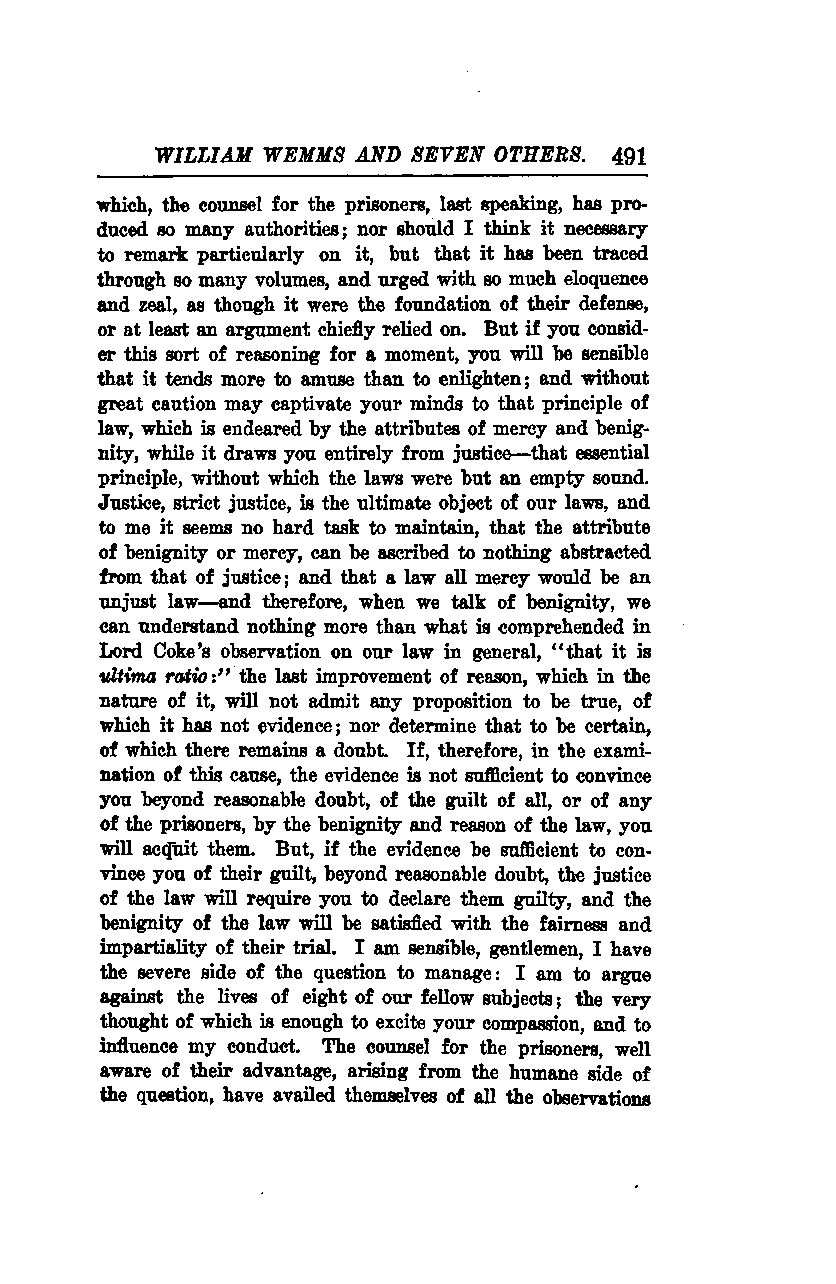
Here is the translated text as follows:
WILLIAM WEMMS AND SEVEN OTHERS
The counsel for the prisoners, having spoken last, has produced so many authorities that I would not normally think it necessary to comment on it particularly. However, it has been traced through so many volumes and urged with such eloquence and zeal, as though it were the foundation of their defense, or at least an argument chiefly relied upon. But if you consider this sort of reasoning for a moment, you will realize that it tends more to amuse than to enlighten. Without great caution, it may captivate your minds to that principle of law, which is endeared by the attributes of mercy and benignity, while it draws you entirely from justice—that essential principle, without which the laws would be but an empty sound.
Justice, strict justice, is the ultimate object of our laws. To me, it seems no hard task to maintain that the attribute of benignity or mercy can be ascribed to nothing abstracted from that of justice. A law all mercy would be an unjust law. Therefore, when we talk of benignity, we can understand nothing more than what is comprehended in Lord Coke’s observation on our law in general, "that it is ultima ratio": the last improvement of reason, which in its nature will not admit any proposition to be true of which it has not evidence, nor determine that to be certain of which there remains a doubt.
If, therefore, in the examination of this cause, the evidence is not sufficient to convince you beyond a reasonable doubt of the guilt of all, or of any of the prisoners, by the benignity and reason of the law, you will acquit them. But if the evidence is sufficient to convince you of their guilt beyond a reasonable doubt, the justice of the law will require you to declare them guilty, and the benignity of the law will be satisfied with the fairness and impartiality of their trial.
I am sensible, gentlemen, that I have the severe side of the question to manage: I am to argue against the lives of eight of our fellow subjects, the very thought of which is enough to excite your compassion and to influence my conduct. The counsel for the prisoners, well aware of their advantage arising from the humane side of the question, have availed themselves of all the observations.